Джон Фаулз - The Tree
Здесь есть возможность читать онлайн «Джон Фаулз - The Tree» весь текст электронной книги совершенно бесплатно (целиком полную версию без сокращений). В некоторых случаях можно слушать аудио, скачать через торрент в формате fb2 и присутствует краткое содержание. Жанр: Современная проза, на английском языке. Описание произведения, (предисловие) а так же отзывы посетителей доступны на портале библиотеки ЛибКат.
- Название:The Tree
- Автор:
- Жанр:
- Год:неизвестен
- ISBN:нет данных
- Рейтинг книги:5 / 5. Голосов: 1
-
Избранное:Добавить в избранное
- Отзывы:
-
Ваша оценка:
- 100
- 1
- 2
- 3
- 4
- 5
The Tree: краткое содержание, описание и аннотация
Предлагаем к чтению аннотацию, описание, краткое содержание или предисловие (зависит от того, что написал сам автор книги «The Tree»). Если вы не нашли необходимую информацию о книге — напишите в комментариях, мы постараемся отыскать её.
The Tree — читать онлайн бесплатно полную книгу (весь текст) целиком
Ниже представлен текст книги, разбитый по страницам. Система сохранения места последней прочитанной страницы, позволяет с удобством читать онлайн бесплатно книгу «The Tree», без необходимости каждый раз заново искать на чём Вы остановились. Поставьте закладку, и сможете в любой момент перейти на страницу, на которой закончили чтение.
Интервал:
Закладка:
The strangest was his fascination with philosophy. That formed three-quarters of his reading, mostly in the great Germans and the American pragmatists; the other quarter was poetry, but again almost all of it was German and French Romantic verse, very rarely English. He must have known many poems of Morike, Droste-Hillshoff, the early Goethe, almost by heart. Though he had one or two favourites such as Voltaire and Daudet, the reading in French was mainly for my sake, after it had become my ‘main' subject at school and at Oxford.
He virtually never read fiction, but there was a secret. It was not until I became a novelist myself that it was disclosed. My first book was well received, film rights were sold; and suddenly one day he announced to me that he had himself long ago written a novel about his war experiences, thought that it too would 'make a good film,’ and asked me to read it. It was hopelessly stiff and old-fashioned, and I knew no publisher would consider it for a minute. Some of the detail of the reality of going 'over the top’ in Flanders was authentic enough, and the central theme, a tale of an Englishman and his German friend in love with the same girl before the war, their coming face to face in no-man’s land, death and reconciliation there, was like all baldly summarized novel themes, intrinsically neither good nor bad. But it read as if it were by someone (as it indeed was) who had read hardly a single word of all the other English fiction and poetry the Great War had produced: no Owen, no Rosenberg, no Sassoon, no Graves, no Manning. . it was so innocent of all their sophistication, technically and emotionally, that it almost had a curiosity value, as a period piece. I asked him if he would like me to see about getting it privately printed, but he wanted his son’s sort of good fortune, public acceptance and success, and I had to tell him the cruel truth.
I am sure the greatest shock for him, when I first told him I was to be published, had been the financial side; for the anomalous counterpart to this anomalous love of philosophy and Romantic verse was an obsession with yield. Just as he endlessly tended his fruit trees, so did he endlessly tend his stocks and shares in the Financial Times — I think probably with equal skill, though he never had very much to invest. Indeed the two things became somehow intertwined, for part of the fruit-harvesting ritual every autumn was the calculation of how much the fruit would have fetched if it had been sold to some local greengrocer; in fact the always considerable surplus was handed out to relations and neighbours, but I am sure this hypothetical ‘dividend’ was important to him. The highest praise he ever bestowed on his own produce was to say how much it had been publicly fetching the week before, as if that somehow added a cachet which superb flavour andcondition could never grant. It was not the somewhat scandalous — in suburban terms — content of The Collector that worried him nearly so much as the thought that it might be a failure; and then, when that hurdle was overcome, that I might leave the sound, if humble, economic safety-net of teaching for full-time writing. In his eyes that was like selling a blue chip for a flagrant gamble.
All I could eventually do about his own novel was to use some fragments of battlefield description in a passage of The Magus. But just before he died I was sitting one afternoon by his bedside in a nursing-home; he was in pain and drugged, and seemingly asleep. Then suddenly he began to talk, a strange rattle of staccato sentences, a silence, then more, another silence. It was to do with some friend being killed beside him during an attack, and was told in terms of a dialogue between my father and some third person who had also been there. It was not in the least said for me, but came out of his near coma. There was no time, it was now again, and eternally now; infinitely more vivid in those snatches of broken sentence than in anything he had written — or indeed ever told me — of his battlefield experiences in his more conscious moments. They had always been taboo. Memories of Ypres and other shattered towns, chateau billets out of the line, life in occupied Cologne, yes; but never the core of it, to those who have not known it: the running, walking, plodding through wire and craters into any moment’s death.
Beside his bed that day I thought of all the crossroads in our two lives where I had murdered him, or at least what he believed in, and in particular of one of his major life-decisions, never forgiven on my part, though I had long ceased to suffer from it. This went back to the end of the Second World War.
We had spent that, self-evacuated, in a cottage of the Devonshire village I fictionalized in Daniel Martin. Despite the external horrors and deprivations of the time, they were for me fertile and green-golden years. I learnt nature for the first time in a true countryside among true countrymen, and from then on I was irredeemably lost as a townsman. I have had to spend long years in cities since then, but never willingly, always in daily exile. I even preferred the antiquated class-system of village life, with its gentry and its ‘peasants’ and infinite grades between, to the uniformity of street after suburban street of samehouses, same fears, same pretensions. But then, once the war was over, my father decided that we must quit the green paradise and return to the grey limbo. Neither of his overt reasons — business and the need to be near London — seemed to me honest. The family firm was virtually wound up, he had no cultural interests (unless one counts professional cricket) that were deprived by the distance of London from Devon.
I can guess now that the experience of village social distinctions, that ancient nose for the difference between status gained by money or education and status grown from ancestry, or generations of inbreeding', had upset him. But I think it was above all the breadth of choice, in terms of how and where you live, that he really disliked in the country. Some of the larger houses and gardens in our village must have corresponded to his dream; but they did not necessarily give status there. The place’s most obvious gentleman (another murder at the crossroads, since he took me under his wing and taught me to fish and shoot) lived in one of its smallest cottages.
I sense that the memory of suburbia must have represented to my father (in what was also I a completely new experience for him) something like the famous old fellowship of the trenches, the consoling feeling of everyone being in the same boat; all genteelly in the same reduced financial circumstances, with the same vague hopes, abiding by the same discreetly agreed codes. Things were far too transparent in Devon, too close to unfair value-systems that were in turn too close to nature; and towards nature my father showed not only no interest, but a distinct hostility (generally muted, before my own passion, into a kind of sceptical incredulity). He would claim he had seen enough open country and breathed enough open air in his three years in Flanders to last him his lifetime; and he regarded even the shortest walks, the simplest picnics away from houses and roads as incipiently dangerous, so many steps towards total anarchy. The only exception was golf, but I think that even there he regarded the rough and the surrounding woods — on the course he played — as something more than just a game hazard. The last country walk I recall attempting with him was in the Essex marshlands. He walked two or three hundred yards from where we had parked along a sea wall, then refused point-blank to go any further against a lifetime’s instincts. He was old then, but quite happy still to walk two or three miles on town pavements.
He had in fact a number of the traits, both good and bad, of what used to be called the ghetto mentality: on the one hand, a keen admiration of intellectual achievement and of financial acumen (skill with yield), a love of the emotional, the Mendelssohnian, in things like poetry and classical music, of brilliant virtuoso performances (he had no time for garden plants that did not put on ‘a good show’), of quintessentially city arts like the music-hall (though one of his sisters who had had the temerity to enter that last world, and once understudied Certie Millar, was cast eternally beyond the pale), on the other, an almost total blindness to nature. This ‘Jewishness’ was not totally unconscious in him. Suburban neighbors who showed a stock anti-Semitism usually received very short shrift; a bludgeoning of Spinoza, perhaps, or Heine, or Einstein, and then a general lecture on what European intellectual and artistic history owed to Jewish genius. He had been a military prosecutor in Cologne, and seen most of the great Edwardian counsels in action before the war, and knew how to browbeat the shitty witness. Philosophical arguments with him could grow painfully like cross-examination, far more forensic than Socratic, and I have shunned the logical ever since.
Читать дальшеИнтервал:
Закладка:
Похожие книги на «The Tree»
Представляем Вашему вниманию похожие книги на «The Tree» списком для выбора. Мы отобрали схожую по названию и смыслу литературу в надежде предоставить читателям больше вариантов отыскать новые, интересные, ещё непрочитанные произведения.
Обсуждение, отзывы о книге «The Tree» и просто собственные мнения читателей. Оставьте ваши комментарии, напишите, что Вы думаете о произведении, его смысле или главных героях. Укажите что конкретно понравилось, а что нет, и почему Вы так считаете.

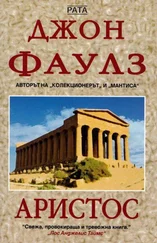
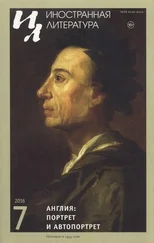
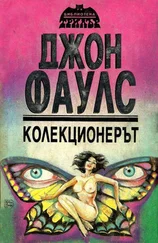
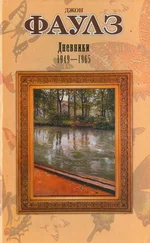
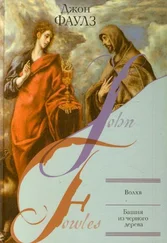
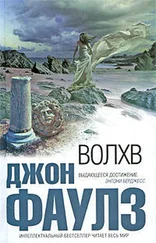
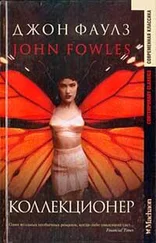
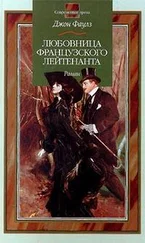
![Джон Фаулз - Вылазка в действительность [антология]](/books/431648/dzhon-faulz-vylazka-v-dejstvitelnost-antologiya-thumb.webp)
![Джон Фаулз - Мантисса [litres]](/books/438194/dzhon-faulz-mantissa-litres-thumb.webp)